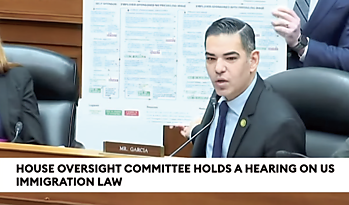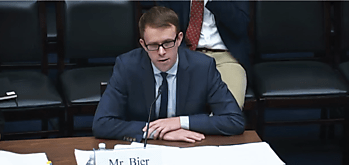Bier and Alex Nowrasteh, vice president for economic and social policy studies, seek to reduce the complexity of the system to allow more peaceful and skilled people to legally immigrate with a minimum of bureaucracy. Their proposals would help reduce border chaos, decrease illegal immigration, and boost the economy. They are among the nation’s most widely cited immigration experts, testifying four times in Congress in 2023 and having their work featured weekly in leading media outlets, including the New York Times, Fox News, NPR, and elsewhere. And policymakers are beginning to take heed.
Bier and Nowrasteh proposed a program for Americans to sponsor immigrants from nations that are flooding the border. In January, the Biden administration partially implemented that idea for Cubans, Haitians, Nicaraguans, and Venezuelans, reducing illegal immigration from those nations by about 85 percent.


